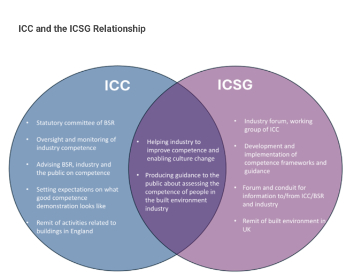MT Høgjaard A/S v E.ON Climate and Renewables UK Robin Rigg East Limited and others
Absolute obligations v reasonable skill and care
Absolute obligations are obligations requiring performance to a certain standard, and nothing but full performance will discharge that obligation. Reasonable skill and care is the common law standard by which professionals are expected to discharge their obligations. The two do not always happily co-exist and it is important to check your contract to ensure professional obligations are qualified to the standard of reasonable skill and care to comply with the terms of your professional indemnity insurance (PII) policy and that you do not inadvertently agree to perform obligations to an absolute standard. You can expect certain obligations to be absolute, for example, the requirement to maintain PII cover or grant a copyright licence.
The recent case of MT Højgaard and E.ON demonstrates the co-existence of the two standards in a contract and how the presence of absolute obligations can lead to severe consequences for the unsuspecting.
MT Højgaard (MTH), the claimant contractor, entered into an agreement with the defendant employers E.ON Climate and Renewables (EON) for the design, fabrication and installation of the foundations for wind turbine generators for an offshore wind farm in Scotland.
MTH’s contract included the following:
“8.1 GENERAL OBLIGATIONS
The Contractor shall, in accordance with this Agreement, design, manufacture, test, deliver and install and complete the Works:
(i) With due care and diligence expected of appropriately qualified and experienced designers, engineers and constructors......
(ii) So that the Works, when completed, comply with the requirements of the Agreement...
(iii) So that each item of Plant and the Works as a whole shall be fit for its purpose as determined in accordance with the Specification using Good Industry Practice...
(iv) So that the design of the Works and the Works when completed by the Contractor shall be wholly in accordance with this Agreement and shall satisfy any performance specifications or requirements of the Employer as set out in this Agreement...”
The employer’s requirements (3.2.2) stated:
“The design of the foundations shall ensure a lifetime of 20 years in every aspect without planned replacement...”
An international standard for the design of offshore wind turbines and grouted connections contained an error of which MTH was unaware when it undertook the design.
The foundations were found to be defective requiring remedial work amounting to EUR 26.25 million and a dispute arose as to whether MTH was liable for these defects.
The judge found MTH liable due to a breach of the fitness for purpose obligation clearly contained in its contract, namely that MTH warranted the foundations would have a service life of 20 years. MTH had relied on an erroneous standard for the design of the foundations but due to the fitness for purpose guarantee it gave, it still had to deliver the design it guaranteed regardless of the error.
The court provided guidance on errors in specifications in that defects caused by an employer’s specification are not the contractor’s responsibility unless the contractor expressly guarantees the construction to be fit for a specific purpose.
Therefore because MTH had assumed a full design responsibility by providing a fitness for purpose warranty it could not escape liability despite the existence reasonable skill and care obligations in the same contract. The judge noted that construction contracts typically contain both reasonable skill and care and absolute obligations and here the two obligations were not incompatible.
The moral of this case must be to approach absolute obligations with caution, to be aware of and qualify them where possible. Otherwise the risk of performance to a higher standard must be accepted and priced, but beware any adverse consequences for your PII cover.
This article was created by --Najma Dunnett 10:47, 1 June 2014 (BST)
[edit] Find out more.
[edit] Related articles on Designing Buildings Wiki
- 199 Knightsbridge Development Ltd v WSP UK Ltd.
- Contract.
- Defects.
- Employer's requirements.
- Fit for purpose.
- Professional Indemnity Insurance.
- Reasonable skill and care.
- Zennstrom & Anor v Fagot & Ors.
[edit] External references
- BAILII, decision in full. MT Høgjaard A/S and E.ON Climate and Renewables UK Robin Rigg East Limited and others (2014) EWHC 1088 (TCC).
Featured articles and news
Twas the site before Christmas...
A rhyme for the industry and a thankyou to our supporters.
Plumbing and heating systems in schools
New apprentice pay rates coming into effect in the new year
Addressing the impact of recent national minimum wage changes.
EBSSA support for the new industry competence structure
The Engineering and Building Services Skills Authority, in working group 2.
Notes from BSRIA Sustainable Futures briefing
From carbon down to the all important customer: Redefining Retrofit for Net Zero Living.
Principal Designer: A New Opportunity for Architects
ACA launches a Principal Designer Register for architects.
A new government plan for housing and nature recovery
Exploring a new housing and infrastructure nature recovery framework.
Leveraging technology to enhance prospects for students
A case study on the significance of the Autodesk Revit certification.
Fundamental Review of Building Regulations Guidance
Announced during commons debate on the Grenfell Inquiry Phase 2 report.
CIAT responds to the updated National Planning Policy Framework
With key changes in the revised NPPF outlined.
Councils and communities highlighted for delivery of common-sense housing in planning overhaul
As government follows up with mandatory housing targets.
CIOB photographic competition final images revealed
Art of Building produces stunning images for another year.
HSE prosecutes company for putting workers at risk
Roofing company fined and its director sentenced.
Strategic restructure to transform industry competence
EBSSA becomes part of a new industry competence structure.
Major overhaul of planning committees proposed by government
Planning decisions set to be fast-tracked to tackle the housing crisis.
Industry Competence Steering Group restructure
ICSG transitions to the Industry Competence Committee (ICC) under the Building Safety Regulator (BSR).
Principal Contractor Competency Certification Scheme
CIOB PCCCS competence framework for Principal Contractors.
The CIAT Principal Designer register
Issues explained via a series of FAQs.

























